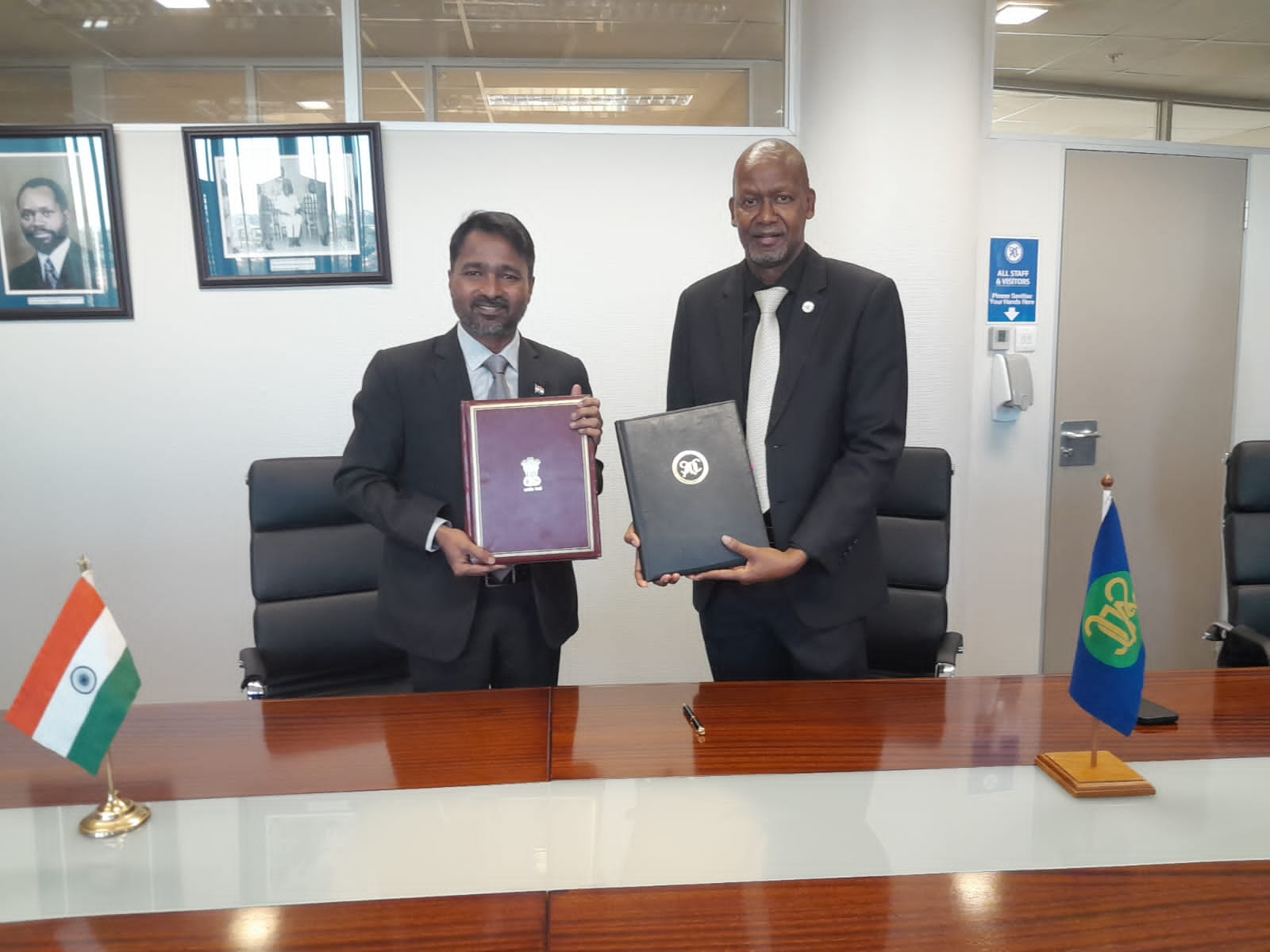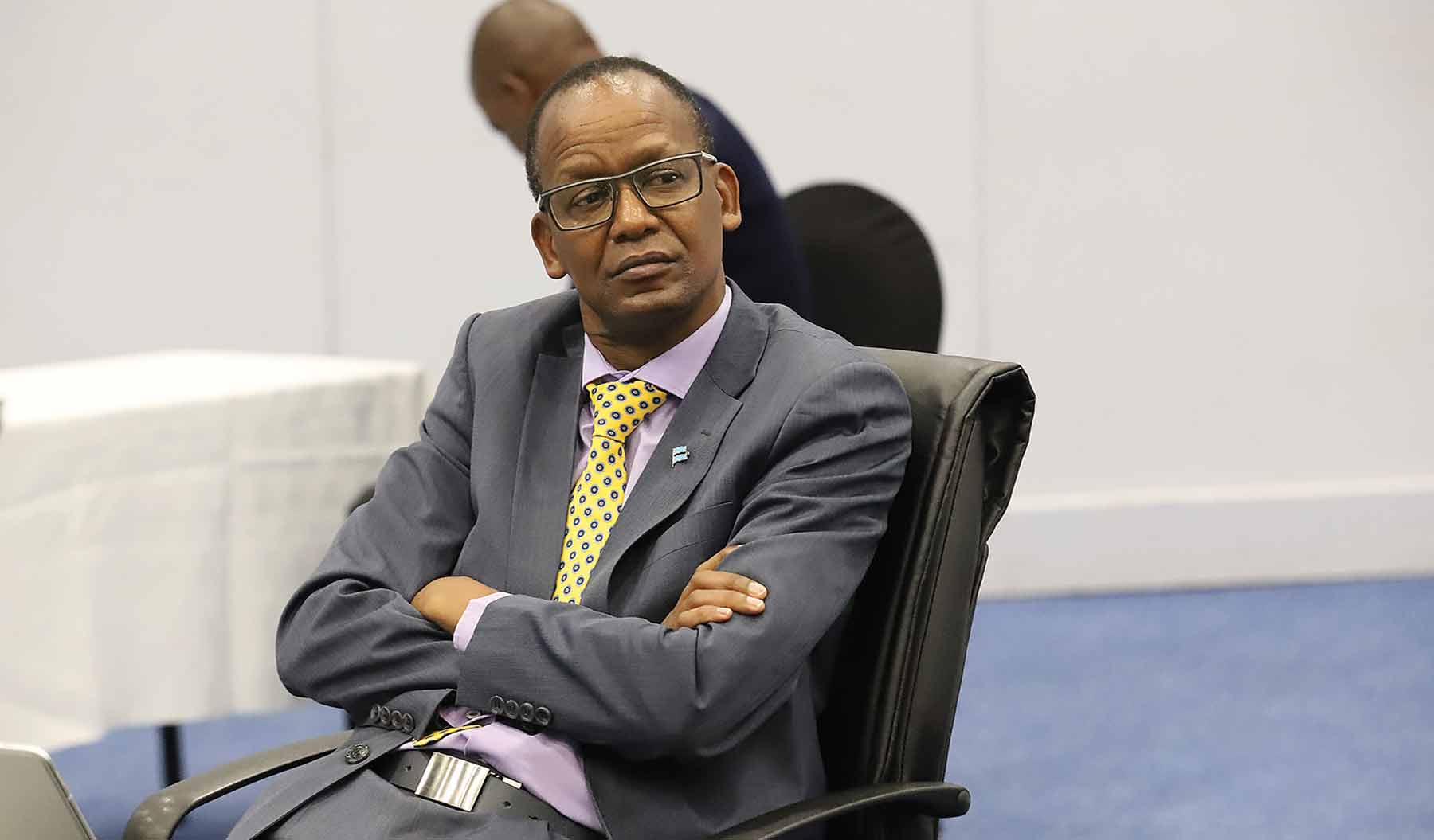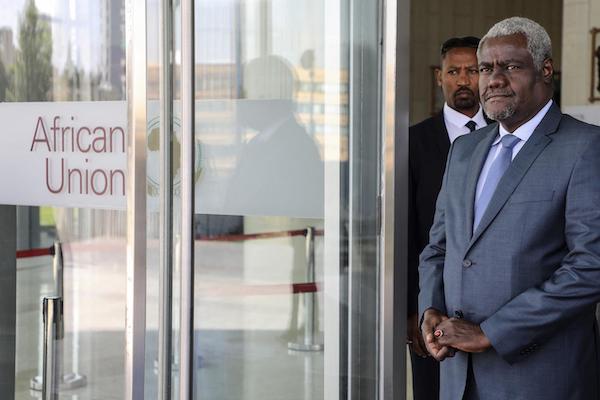
Also published in Lawfare
ABOUT THE AUTHORS


Sabina Henneberg is a 2022-23 Soref Fellow at The Washington Institute.
Twenty years after its last term, Algiers returns to make its mark, potentially affecting U.S. efforts on Gaza, Ukraine, the Western Sahara dispute, and more.
In June 2023, the UN General Assembly elected Algeria to the UN Security Council as a non-permanent member to serve a two-year term that begins this month. This will be Algeria’s fourth term on the council, where it will hold one of three African seats and will be the only country representing the Arab region. However, since its last term 20 years ago, it’s safe to say the world has changed significantly, creating potential for Algeria to assert itself as a more important global and regional actor.
What It Means to Hold a Non-Permanent Seat
On the one hand, the influence of any non-permanent member of the UN Security Council is limited by design. The 10 elected members (Algeria, Ecuador, Guyana, Japan, Malta, Mozambique, Republic of Korea, Sierra Leone, Slovenia, and Switzerland) do not bring the same institutional memory as the five permanent ones (China, France, Russia, the United Kingdom, and the United States), which tend to be better prepared and better equipped to fulfill their role effectively. The elected members also lack the power to block decisions, even those they consider to be against their national interest, through a veto.
On the other hand, the council’s formal and informal working methods appear to give the non-permanent members some influence. For example, they can coordinate to act as their own veto, given that any resolution needs nine yes votes to be adopted. As the permanent members have become increasingly divided among themselves in recent years, their divisions over issues considered directly relevant to their national security, such as Israel or Ukraine, have spilled over into other issues. This places an additional burden on the non-permanent members to show responsibility toward those who elected them—in other words, the majority of UN member states—by working to achieve a text that is broadly consensual.
Non-permanent members represent their regions in the council, and their voices can add legitimacy to decisions or discussions that affect that constituency. For example, during the contentious 2011 vote on Resolution 1973, which effectively authorized military intervention in Libya, support on the draft text from Lebanon, as an Arab country, helped lead to its adoption. Similarly, in early 2012, as the council debated action in response to the Syrian conflict, many members argued for the adoption of an Arab League proposal advanced in a draft by then-council member Morocco—although the resolution was ultimately vetoed by Russia and China.
For non-permanent members, the responsibility to represent their region can sometimes conflict with their national interests. This can complicate a country’s relationships with its regional allies. For example, when Tunisia was on the council in 2019-2020, Permanent Representative Moncef Baati was summoned by the government in Tunis for his criticism of U.S. President Donald Trump’s Middle East peace plan. Baati was apparently caught between a diplomatic imperative—shared by most Arab countries—to defend Palestinians and his government’s desire to please Washington.
Given these potential tensions between regional representation and national interests, Algeria will be an especially interesting non-permanent member to watch. Since the election of President Abdelmadjid Tebboune in 2019, Algeria has sought to position itself as an important regional and global actor, through its application—albeit unsuccessful—to join the BRICS (the economic group that includes Brazil, Russia, India, China, and South Africa) and by offering to mediate in numerous conflicts, to name a few examples. These attempts to enhance diplomatic visibility echo similar efforts during Algeria’s last tenure on the council, in 2004-2005. At the time, Algeria was emerging from its decade of violent internal conflict under the presidency of seasoned diplomat Abdelaziz Bouteflika, and taking a seat on the council symbolized its return to the world stage. Fifteen years later, the domestic, peaceful uprising in 2019-2020, followed by the devastation of COVID-19, left Algeria profoundly shaken once again. However, heightened energy prices following Russia’s 2022 invasion of Ukraine gave Algeria diplomatic and economic momentum it hopes to build on with its seat on the Security Council, which is generally considered symbolic of global stature.
Issues to Watch For
While coups and conflicts abound, along with ongoing issues of global concern such as climate change, sanctions, and nuclear proliferation, any number of complex issues could come before the council during Algeria’s term. In his remarks at the UN General Assembly meeting last September, Tebboune highlighted Algeria’s commitment toward progress on intergovernmental negotiations over Security Council reform—a long-debated subject where proposals to ensure equitable geographic representation on the body include the creation of a permanent African seat.
Given its well-established alignment with South Africa—another state that prioritizes the support of liberation movements and advancing conflict resolution through multilateral institutions—Algeria could use its position in the next two years to call for the creation of a permanent seat for an emerging African state. However, as Algerian Foreign Minister Ahmed Attaf acknowledged recently, African countries are likely to be divided on such questions. Although Security Council reform is highly unlikely to occur any time soon—most notably because of permanent member resistance—advancing such efforts while on the council will be important for Algiers to appease its domestic and African constituencies.
On the issue of Israel and the Gaza conflict, Algeria will seek to demonstrate its position against Israel and its commitment to the Palestinian cause. Algerians are passionate supporters of Palestine, and Tebboune made explicit in his recent remarks that his country would push for Palestine to become a UN member state, rather than its current status of non-member observer state. Such activism is likely to challenge relations with Washington, with which Algeria has traditionally had a cordial, but not necessarily warm, relationship. The Palestine issue could therefore be another example of the challenge of balancing regional interests with bilateral alliances.
The past several years have been tumultuous ones for the Sahel, a region in which Algeria is a major stakeholder. In any discussion regarding the instability in Mali, Niger, Chad, and elsewhere in the region, Algeria is likely to play a vocal and potentially leading role. The same is true for Sahelian counterterrorism, in which, as with conflict mediation, Algeria believes it has relevant experience to offer within the context of international institutions.
Ukraine may prove to be a trickier situation for Algeria to navigate. Any votes that come before the council regarding the war and its resolution will likely leave Algeria torn between permanent members, namely Russia, with which the North African country has historically been close, and the United States, which has recently sought greater engagement with Algiers (including toward cooperation in the Sahel). Although Algeria would most likely abstain from a Security Council vote unfavorable to Russia, as it has done in almost all such votes within the General Assembly since 2022, the recent push by the United States to find common ground with Algiers will surely weigh in Algerian decision-makers’ minds.
Western Sahara
The issue most pertinent to Algeria is that of the disputed territory of the Western Sahara—recognized under international law as non-self-governing and over which Morocco claims sovereignty. Algeria backs the native Sahrawi separatist movement and hosts thousands of refugees in camps on Algerian soil.
The council receives briefings on this issue twice each year and votes every October on a resolution to renew the mandate of the UN Mission for the Referendum in Western Sahara (MINURSO). The council created MINURSO in 1991 to implement a referendum on self-determination in the territory. By the early 2000s, the referendum process had stalled, and the UN and the United States sought in vain to negotiate a political solution to the conflict between Morocco and the separatist movement represented by the Polisario Front. Until recently, MINURSO’s mandate was renewed annually through a combination of formal and informal processes. The United States, as penholder, traditionally worked through the so-called Group of Friends—France, Russia, the United Kingdom, the United States, and Spain (despite not being a permanent member, Spain was included because it had colonized the territory from 1884 to 1976)—to present a draft resolution, which would then typically be adopted by consensus.
Since 2018, however, Russia has consistently abstained, objecting to the text’s diluted references to the referendum and inadequate consultation of other council members. Such positions align with Algeria and against its rival, Morocco, because they reinforce a referendum process rather than pushing toward some form of negotiated autonomy as Morocco has proposed (with the backing of the United States and France). This dynamic suggests that Algeria will abstain in the 2024 and 2025 votes on MINURSO renewal, despite having voted in favor in the past.
A no vote by Algeria on the renewal of the MINURSO mandate is unlikely, because it would indicate a rejection of the UN’s mediating role in the conflict, which it rhetorically supports. Perhaps more importantly, because council members tend to be constrained by norms of responsibility and legitimacy, Algiers may want to avoid becoming the first country to ever vote against the text.
Algeria may seek to persuade the two other African members (known collectively as the A3) to abstain, potentially in an attempt to pressure the United States to adapt the text to reflect other council members’ concerns. However, as on the issue of Security Council reform, such unity is far from guaranteed. Although Mozambique (which joined Russia in abstaining in the 2023 vote) will be on the council in 2024, so will Sierra Leone, which supports Morocco’s autonomy plan.
Algeria could also choose during the resolution process to call attention to the absence of a human rights monitoring component to the mission’s mandate. This has long been the subject of criticism by human rights groups, but Morocco’s traditional allies in Washington and Paris have consistently blocked its inclusion, in a thinly disguised concession to Rabat. A successful deployment of such monitoring mechanisms could be perceived as eroding Morocco’s effective sovereignty over the territory—a tactical objective of Algeria and the Polisario Front. Although insistence by Algeria is unlikely to lead to the inclusion of human rights monitoring in the MINURSO mandate, Algeria’s vocal objection to its absence will be symbolically important. It could also create an uncomfortable situation for the U.S. as penholder as it actively seeks greater alignment with Algiers. As the U.S. works to expand its relations with Algeria, any concession in the carefully crafted language of the MINURSO resolution could further erode Washington’s relations with Rabat, already weakened by the ambiguity of the current administration position on the issue.
Finally, Algeria will use its presence on the council to try and bring visibility to the issue. During its month-long presidency (set for early 2025), Permanent Representative Amar Benjdama can call for additional briefings or so-called Arria formula meetings, which permit council members to seek input from nongovernmental organizations, including human rights groups. Such visibility might dissuade countries from backing Morocco’s autonomy proposal.
The Unknowns
Algeria’s accession to the council will most likely bring opportunities to enhance its diplomatic stature and reinforce messaging around issues of domestic importance. Algeria will undoubtedly, however, face challenges in balancing its national interests—including pursuing stronger relations with the U.S.—with its role representing the Arab and African regions as well as its long-standing relationship with Russia. Unexpected events, whether related or unrelated to the Western Sahara, could enhance opportunities or create new challenges. For instance, the appointment of John Bolton—an unlikely advocate for Saharan independence—as U.S. national security adviser in 2018 prompted additional activity within the council around the Western Sahara as Bolton pushed for a resolution to the conflict. Similarly, the lack of international support for the U.S. invasion of Iraq in 2003 unexpectedly brought non-permanent council members into the limelight, as Washington scrambled for their support. Even sudden events outside the Security Council that affect the Western Sahara issue or the Arab world—such as the sudden violence in East Timor following a successful referendum on self-determination in 1999, President Trump’s recognition of Moroccan sovereignty over the Western Sahara in 2020, and the outbreak of the Gaza war in 2023—could force Algeria to take tough decisions or help it rally support around existing positions.
Sabina Henneberg is a Soref Fellow at The Washington Institute. This article was originally published on the Lawfare website.
(C) The Washington Institute for Near East Policy









